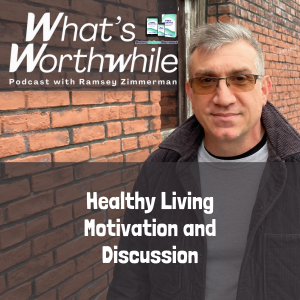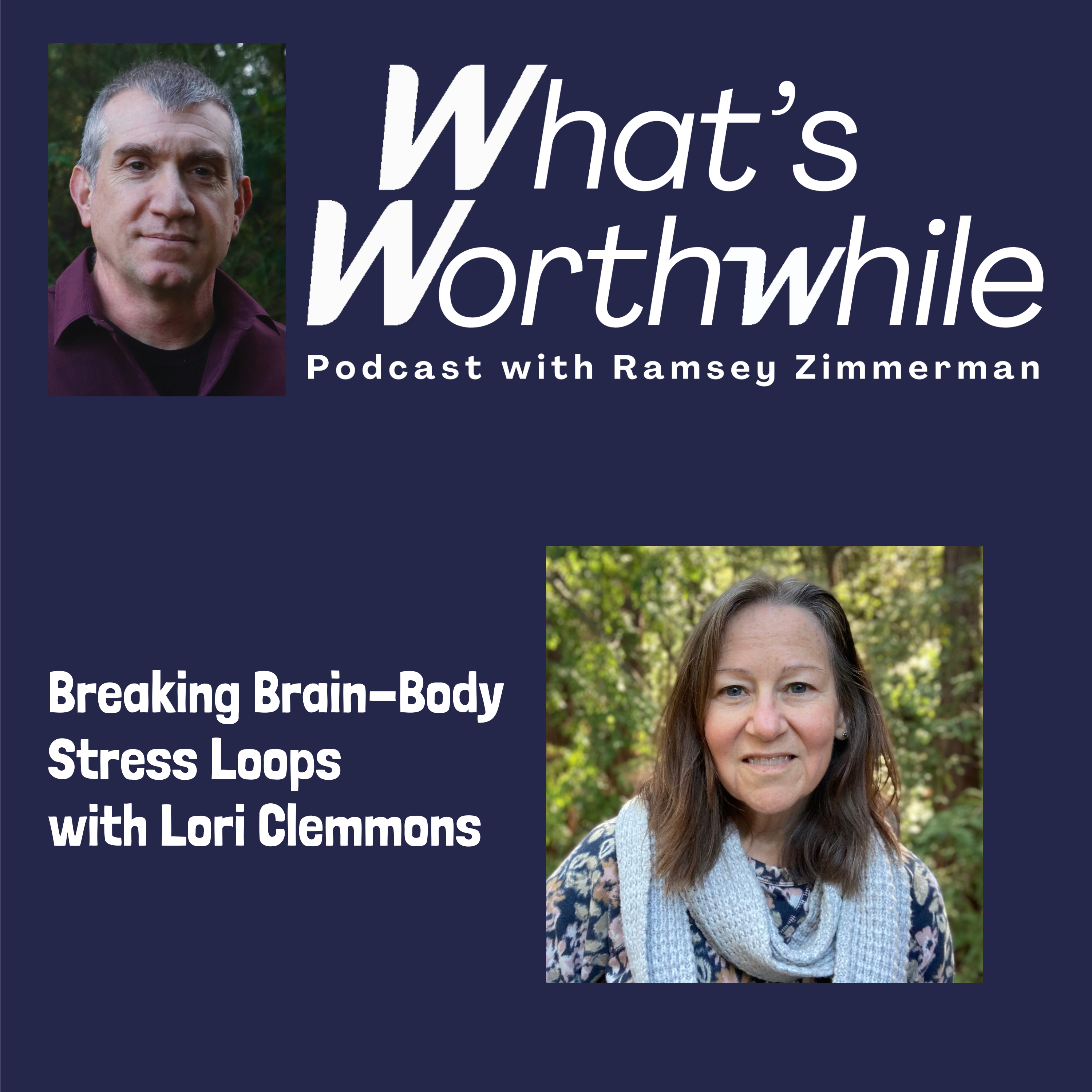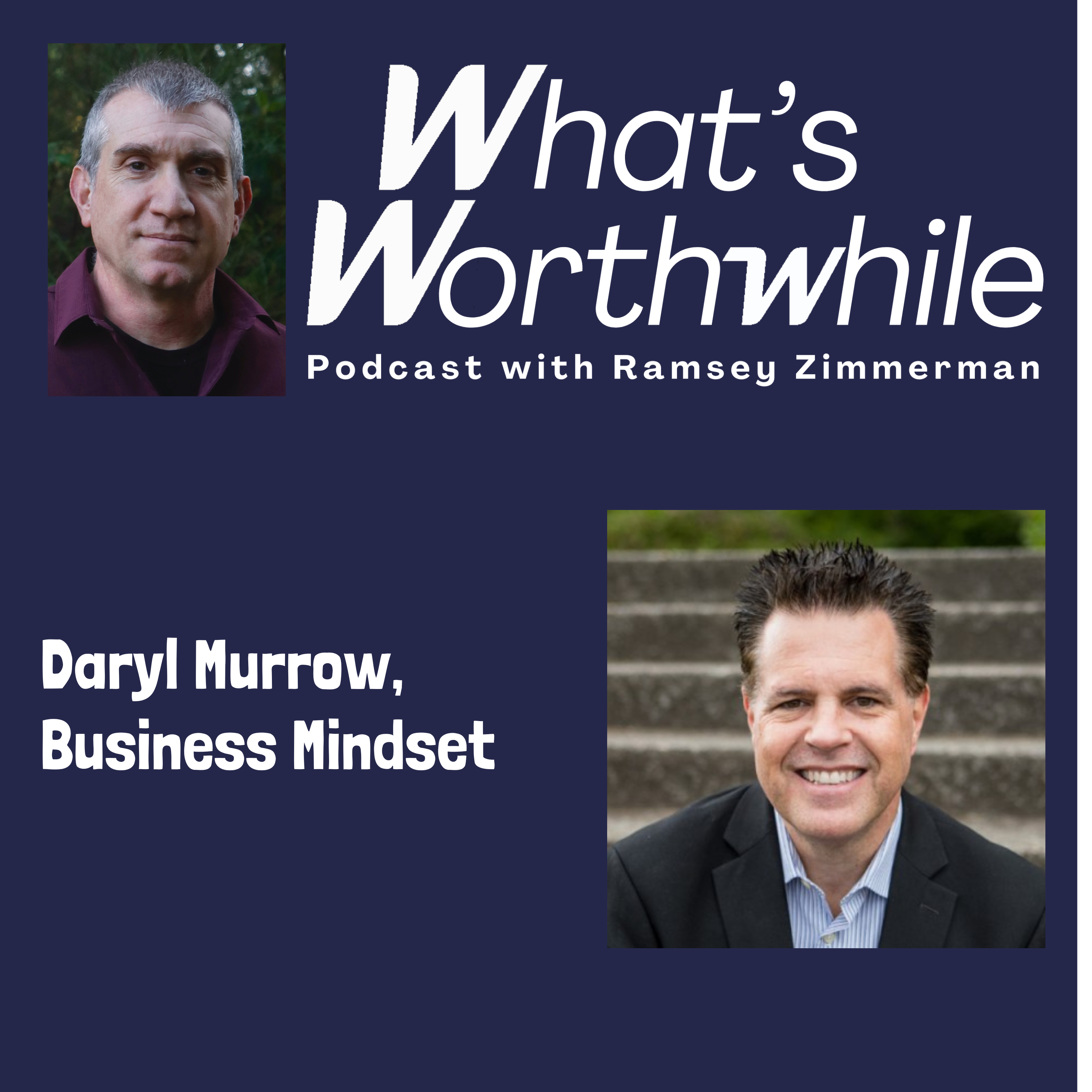[00:00:00] Speaker A: Hey there, it's Ramsey here with a deep dive on political reform. Does anyone think that the american political system is just fine? That it works great, that it represents the people fairly and without undue influence from certain powers? Or can reasonable people agree that the relevant questions are something like, how broken is it? And what, if anything, can we really do to fix it? Well, in my research, I stumbled across a video of Jennifer Lawrence in a classic case of life imitating art, passionately laying out the case of government corruption and what it takes to fix problems like that. I mean, she wasn't actually wearing a bow across her back, but I definitely got some Hunger Games vibes. This is on the homepage of represent us. The video did a great job of explaining how laws in our nation are not created based on popular ideas that the people care about, but instead are based on the will of the people with lots of money to invest in politicians. According to their website, represent us is America's leading anti corruption organization, working city by city, state by state to fix our broken political system? The video is part of their unbreaking America series, solving the corruption crisis. Represent us has wide support across the.
[00:01:14] Speaker B: Political aisle, as well as massive star.
[00:01:16] Speaker A: Power with actors and musicians including Jennifer Lawrence, Michael Douglas, JJ Abrams, Rachel McAdams, Ben Harper, Jack Black and many, many more. Their strategy is to follow a historical precedent of gaining momentum at the state level with issues in order to win at the federal level. Ten years in, theyve worked with more than 24,000 volunteers in cities and states across the country. Represent us does not blame one political party or the other. Instead, it looks at systematic issues and the two party system itself, which feels completely entrenched here in the US. I think the two parties want us to feel that way, too. It's strange, though, because we have independence so deeply in the american DNA. We declared it. Remember, there is a group called independentvoting.org dot that is a gathering and celebration spot for all independents. Recent surveys put the number of people who don't affiliate themselves as either Republicans or Democrats at around 50% of our nation. Half of us. Independent voting's founder, Jackie Salat, worked on several of the most prominent independent presidential campaigns over the years. I remember the valiant attempts by third party presidential candidates in recent elections, Jesse Ventura, Rob Nader, Ron Paul, Ross Perot, and even John Anderson. Of course, none of those guys won. Why is it so hard for third party candidates to succeed, even in elections smaller than the presidency? It's due to the winner takes all structure which we have. Each party has a primary. The primary selects the party nominee. In the general election, there is one candidate from each party, not a lot of choice in the primaries. It's hard to even imagine that the people are voting for a person in the primaries to represent them. It feels more than ever that the party itself is choosing its champion. OpenPrimaries.org is an organization leading the effort to ensure that independent voters can vote in all primaries. A closed primary is one where only party members can participate. The vast majority of states already have open primaries, but there are several notable holdouts, including New York, Florida, and Massachusetts. The partisan fear of open primaries is that haters will cross over into a primary and vote for who they want to run, not necessarily who they want to win. These political saboteurs presumably ask themselves, hmm, who would lose the most outrageous candidate, the most boring one. Studies suggest, however, that only around 2% of partisans cross over like that, and they do so from both sides, effectively canceling each other out. Further, participation in primaries is low, maybe around 20%, and usually is the most passionate partisans on each side. So the traditional primary system tends to bias candidates further toward political fringes as opposed to the center, ironically, where most voters happen to be. So what do we do about that? What if we could vote for more than one candidate? What if we could express our opinion and preferences about all of the candidates who are running? That is what ranked choice voting, or RCV, is all about. Rankthevote us focuses on RCV and explains how it is a solution. Basically, with RCV you rank all of the candidates running in order of your preference, one, two, three, even four and five. It works like this. If someones first choice cannot win the election, then their vote goes to their second choice and so on until a candidate wins a majority. Voters get more expression and can vote on the full range of their issues. There is less divisiveness because candidates win by building a coalition, earning number two or three ranks from voters to win. And there is more positivity in the race as candidates focus on what they represent instead of tearing down their opponents. 28 states now have at least one jurisdiction that uses RCV for election. Ranked choice voting has a lot of momentum. There are also viable variations on RCV, such as proportional ranked choice voting. The organization fairvote.org is a national proponent of this approach. Proportional RCV is used across geographical areas where more than one representative is elected. At the same time, Fairvote says it is straightforward for voters. They rank candidates in order of choice, candidates who receive a certain share of votes called the threshold are elected based on the number of seats open to fill. For example, if there are three seats to fill, then any candidate who gets more than 25% of votes earn a seat. Yes, it involves some math, but it is an elegant solution that ends gerrymandering, which is, of course, the esoteric art of drawing voting districts into absurd shapes to basically ensure that incumbents continue to win reelection based on picking their voters instead of the voters picking them. The Fair Representation act has proportional RCV at its heart, and it continues to build momentum in the US House of Representatives. It likely won't pass in 2024, but it has gained more support this cycle than it ever has before. Rank the vote and Fairvote work together and have a network of affiliated state and local organizations promoting RCV and related solutions. I live in Washington state and fair vote Washington continues to gain traction with its statewide initiative. These groups have been racking up wins in recent years and months. In her video the Mockingjay, I mean Jennifer Lawrence pointed out how national political shifts occur when there is a critical mass of state and local efforts, and their success triggers a federal change. Think civil rights or women's suffrage or same sex marriage. So represent us is working with local groups across the nation to get anti corruption laws passed in local and state settings. Their website catalogs 184 wins and counting. Represent us is in the news lately, promoting a bill that would ban members of Congress from trading stocks. Many such members have inexplicably, massively beat the market with their personal portfolios. Go figure. So all that being said, how do we ordinary citizens make a difference or even a dent in the election or political system? It helps to get practice talking about it. Independent voting offers spokesperson training, which they describe as part performance training and part educational. But it gives tools to explain why people are independent and not just hidden partisans. Fair vote and rank the vote also give trainings and resources for how to describe ranked choice voting simply and clearly. Perhaps the best resource for people to make a difference is bridgealliance. Us want to get informed and stay up to date on all of these initiatives. Read and subscribe to their publication, the Fulcrum, a news and opinion source dedicated to leveraging our differences. Haha. Get it. Looking for a local or state organization for which you can volunteer? Go to CitizenConnect us and search more than 500 member orgs across the nation that would love to get your help now. Want to make sure that all voices are heard? Become a Jedi that is justice, equity, diversity and inclusion through Bridge alliances Dei initiatives. Are you a collegiate athlete, or do you have one in school? Join the Engaged athlete fellowship program on college campuses. Student athletes are leaders, role models, and celebs, and they can champion political reform causes. And if you are a journalist and wonder what it would be like to collaborate with someone who is in a totally different demographic market with a totally different perspective in order to write a more balanced, nuanced story than become a news ambassador. Okay, so where does that leave us? As I record this, we're in the primary season of 2024. In the presidential race, it seems pretty clear who the major party picks are going to be unless something really wacky happens. Add to that a number of independent or third party candidates, one of which has the name and legacy of one of the most famous and vaunted presidents of all time, Kennedy. Will he be a spoiler? We don't know. Meanwhile, RCV is being implemented in more and more local jurisdictions, but is yet to have very many statewide deployments. Although it occurs to me that the current GOP and Dem presidential candidates might end up being the best argument ever for expanded voting systems. And for today, that is enough.
Thank you for asking.
[00:09:45] Speaker B: What's worthwhile? Visit what's worthwhile.net to learn more about me, Ramsey Zimmerman, and please provide your name and email to become a supporter. I'm asking for prayer, advice, feedback, and connections. The what's worthwhile podcast is on Spotify, Apple, iHeart, and Amazon. You can also
[email protected] dot thanks.


